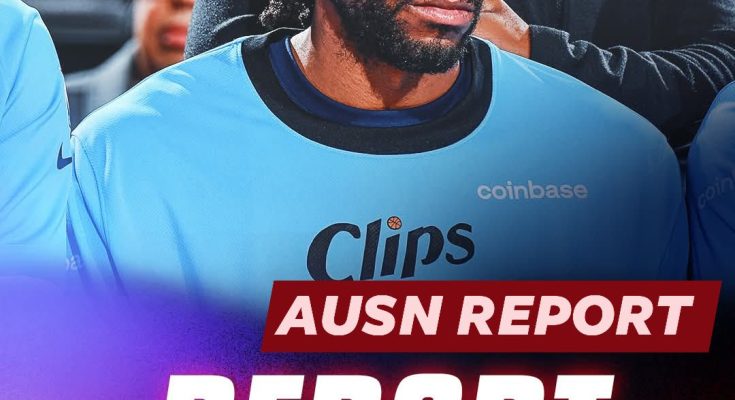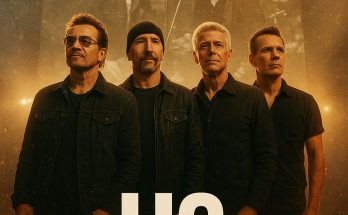In December 2022, an intriguing financial arrangement surfaced involving the Los Angeles Clippers, their co-owner Dennis J. Wong, and star player Kawhi Leonard, which has since attracted the attention of the NBA and its compliance department. According to reports, Wong made a substantial investment—nearly $2 million—in Aspiration, an environmentally focused financial services company. Not long after, Aspiration paid Leonard approximately $1.75 million. This payment was reportedly tied to Leonard’s endorsement contract with the company, which requires Aspiration to compensate him as part of their agreement. The details, however, have raised serious questions about the nature of this transaction and whether it was structured in a way that might circumvent NBA salary cap regulations. Consequently, the league has launched an investigation into the Clippers organization, the team’s majority owner Steve Ballmer, and Leonard himself to determine if any league rules were violated.
The NBA operates under a stringent salary cap system designed to maintain competitive balance among its 30 teams. This system limits the total amount of money each team can spend on player salaries. It also includes detailed rules surrounding player compensation, including benefits, endorsements, and related financial arrangements. Teams and players must navigate this framework carefully to avoid penalties or sanctions, which can include hefty fines, loss of draft picks, or even suspensions.
In this case, the NBA’s concern stems from the timing and structure of Wong’s investment in Aspiration and the subsequent payment to Leonard. The nearly $2 million invested by Wong—who is not only a co-owner of the Clippers but also an influential figure within the organization—raises the question of whether this money was, in effect, an indirect way to compensate Leonard beyond the confines of his official salary. If true, such a scheme would undermine the salary cap by providing Leonard additional income linked to his Clippers employment without it being properly accounted for within the team’s payroll.
Aspiration, the company at the center of this arrangement, is known for its commitment to environmentally sustainable financial products and services. Leonard’s endorsement deal with Aspiration has been publicly acknowledged, and the payments to him were said to be part of this contract. However, the league’s investigation is focusing on whether the endorsement deal was a legitimate business arrangement or if it served as a conduit to funnel money to Leonard that might otherwise be restricted under NBA financial rules.
The NBA’s investigative process typically involves a thorough review of financial records, contracts, communications, and other relevant documentation. In this situation, the league will scrutinize the timeline of Wong’s investment, the contractual terms between Leonard and Aspiration, and any correspondence that might indicate coordination between the Clippers’ ownership and Aspiration. The involvement of Steve Ballmer, the Clippers’ majority owner, is also under review given his central role in the team’s operations.
For the Clippers, this investigation adds a layer of complexity to a franchise that has been trying to cement itself as a championship contender. Leonard, who is widely regarded as one of the best two-way players in the league, is a critical component of their success on the court. Any disruption to his standing with the team—be it through fines, suspensions, or contractual disputes—could impact the Clippers’ prospects in upcoming seasons. Beyond the immediate financial and legal implications, the team also faces potential reputational damage should the investigation uncover any wrongdoing.
Steve Ballmer, a high-profile owner known for his passion for the team and willingness to invest heavily in its success, has been publicly supportive of Leonard and the organization’s efforts. Ballmer’s background as the former CEO of Microsoft and his reputation for business savvy make the investigation’s scrutiny of his role particularly noteworthy. If it is found that Ballmer or his representatives facilitated or were aware of any attempts to circumvent salary rules, the consequences could be significant for both him personally and the Clippers as an organization.
Dennis J. Wong’s involvement is especially intriguing given his dual role as both an investor in Aspiration and a co-owner of the Clippers. His investment could be viewed in multiple ways: as a straightforward financial move into a growing environmental company, or as part of a more complex strategy to provide Leonard with additional compensation. The league will be keen to understand the nature of Wong’s intentions and whether his actions violated conflict of interest policies or other NBA regulations.
From Leonard’s perspective, the payments from Aspiration could be viewed as a normal part of his endorsement portfolio. Many top NBA players maintain multiple endorsement deals that contribute significantly to their overall income. Leonard’s deal with Aspiration, if legitimate and properly structured, would not necessarily raise any red flags. However, if the endorsement arrangement was engineered or manipulated to disguise compensation linked directly to his role on the Clippers, it could be interpreted as an attempt to evade salary cap rules.
The NBA’s investigation process is typically confidential, and it may take several months before any conclusions or disciplinary measures are announced. During this time, all parties involved—Leonard, the Clippers’ ownership group, and Aspiration—are expected to cooperate fully with league officials. The league will also likely consult its internal legal and financial experts, as well as external advisors, to assess the evidence and determine if a violation occurred.
This situation brings to light the broader challenges faced by professional sports leagues in regulating player compensation in an era where athletes command vast endorsement incomes and often have complex financial portfolios. The line between legitimate business dealings and circumventing salary caps can be blurry, and leagues like the NBA must remain vigilant to ensure fairness and transparency.
It also underscores the increasing intersection of sports and business, particularly as athletes and team owners engage in multifaceted financial arrangements. Ownership groups investing in companies where their players have endorsement deals is not inherently improper, but the details and transparency of such transactions are crucial to maintaining the integrity of league rules.
The Clippers, meanwhile, must navigate this period carefully to minimize disruption. The team has invested heavily in assembling a competitive roster and maintaining a positive public image. Any findings of wrongdoing could lead to penalties that might hamper their ability to operate freely in future seasons. For Leonard, maintaining his focus on basketball amid this off-court scrutiny will be a delicate balancing act.
In the broader NBA community, this investigation may prompt other teams to review their own endorsement and investment relationships with players to ensure compliance with league rules. It could also lead to tighter regulations or clarifications from the NBA on how such business dealings should be structured and reported.
As of now, the NBA has not publicly indicated a timeline for the completion of its investigation or the potential penalties that might be imposed. However, the league’s commitment to upholding its salary cap rules and preserving competitive balance is well established. This case serves as a reminder that even the most high-profile players and successful franchises are subject to scrutiny and must operate within the league’s governance framework.
For fans, the unfolding story adds another layer of drama to the NBA offseason. Beyond trades, drafts, and on-court performances, the financial and legal maneuvers behind the scenes continue to shape the league’s landscape. The outcome of this investigation could influence not only the Clippers and Leonard’s future but also set precedents for how player endorsements and ownership interests intersect in professional sports.
In summary, the reported $2 million investment by Clippers co-owner Dennis J. Wong into Aspiration, followed by a nearly equivalent $1.75 million payment to Kawhi Leonard as part of his endorsement contract, has triggered an NBA investigation. The league aims to determine whether this arrangement was a legitimate endorsement deal or a method to bypass salary cap rules. The investigation involves key figures including Clippers majority owner Steve Ballmer and Leonard, with the potential for significant ramifications depending on the findings. As the inquiry unfolds, it highlights the complexities of player compensation, ownership interests, and regulatory compliance in modern professional sports.



